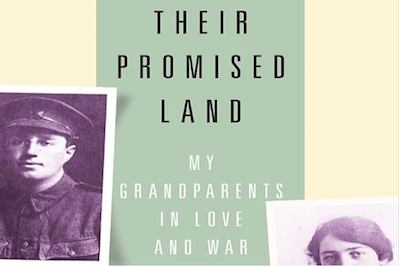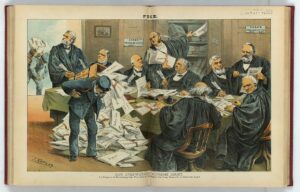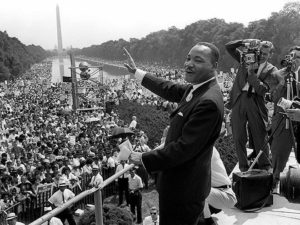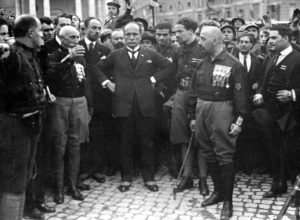Their Promised Land
Were Ian Buruma not an acclaimed historian, this book would probably never have been published. Yet the story of his grandparents, which spans both world wars, is full of resonance for contemporary Europe’s struggle with mass immigration and national identity. Penguin Press
Penguin Press
“Their Promised Land: My Grandparents in Love and War” A book by Ian Buruma To see long excerpts from “Their Promised Land” at Google Books, click here.
Ian Buruma, a versatile historian and intellectual equally at home discussing the emergence of modern Japan (“Inventing Japan: 1853–1964”), Islam’s place in contemporary Europe (“Murder in Amsterdam: Liberal Europe, Islam, and the Limits of Tolerance”), humanity’s tentative resurrection after World War II (“Year Zero: A History of 1945”), and a host of other subjects, now turns his attention to something more personal. His new book, slight yet winsome, is entitled “Their Promised Land: My Grandparents in Love and War.” It relies, in large part, on the letters the late couple exchanged over the decades, especially during the two world wars that kept them apart. The author’s careful collation, judicious excerpting and perceptive commentary cannot infuse his grandparents’ mini-saga with the urgency it sorely lacks, but together these elements make for a poignant investigation of the often self-sustaining “stories they told each other and themselves about who they were.”
The late Bernard and Winifred Schlesinger were ordinary folks — on the face of it, at least. Very early in their budding yet chaste premarital relationship, Buruma’s maternal grandparents had to endure a prolonged separation wrought by the Great War, during which Bernard was off fighting in continental Europe and the Middle East, while Win volunteered as a nurse on the home front. They coped by trading letters — and yearning for the day they wouldn’t have to. Yet even in the immediate postwar period, with Bernard back in England studying medicine at Cambridge and Win reading German literature at Oxford, swapping missives served as their chief means of communication. In 1921, by which time they were unofficially engaged, a romantic Bernard wrote Win of the epistle-free future he envisaged: “You’ll be mine and I’ll be yours & we shall then be able to tear up all our note paper … our correspondence will then forever be one of the hand, one of the eye & one of the lips.”
If they did in fact tear up their notepaper upon marrying a few years later, they purchased a new batch when the British military, in whose ranks Bernard enlisted in 1939, began shuffling him around the British Isles before dispatching him to India as an army doctor in 1942. Most importantly, they didn’t tear up the letters written on all that notepaper. And the couple’s son, the late John Schlesinger (director of such acclaimed films as “Midnight Cowboy,” “Sunday Bloody Sunday,” and “Marathon Man”), preserved much of their correspondence. “In the barn of John’s country house in Sussex,” writes the Dutch-British Buruma, who grew up in the Netherlands and would visit his grandparents in Britain every year as a child, “was a stack of steel boxes filled with mouse droppings and hundreds of letters, the first of which was written in 1915, when Bernard was still at boarding school and Win was studying music in London. The last ones were written in the 1970s.” The couple was married from 1925 until Bernard’s death in 1984. Win died in 1986.
Certain aspects of the pair’s struggles, concerned as they were with fitting together the various constituent elements of their identity as Britons of German Jewish origin, are not only age-old, but, in our time of global mass migration, increasingly relevant. After all, England, land of their birth and upbringing, included more than a few people who treated them as though they didn’t fully belong.
“My name is Karim Amir, and I am an Englishman born and bred, almost,” is how Hanif Kureishi (with a wink at Saul Bellow) opened his droll debut novel “The Buddha of Suburbia,” whose narrator/protagonist is British-Pakistani.
So it was with Buruma’s grandparents — thanks to a vague yet ever-present “otherness” about them. Two factors accounted for this phenomenon. The first was a tendency on the part of many of their compatriots to pay undue attention to Bernard and Win’s faintly apparent ethnic and religious particularities. The second was the couple’s own unwillingness, despite a genuinely deep attachment to England as well as an occasionally overwrought nationalistic sentiment, to allow their Englishness to submerge the Jewish and German facets of their identity.
Bernard Schlesinger and Winifred Regensburg both came into the world in London on the eve of the 20th century. Their parents, aside from Bernard’s mother, were born and raised in Germany; in addition to their native English, Bernard and Win spoke German from an early age. Both families were part of the Jewish community of Hampstead; however, while Bernard’s was Orthodox (keeping kosher, for instance), Win’s steered clear of any kind of religiosity, even the non-Orthodox variety. It was at the home of a mutual family friend, where Win gave a violin recital, that she met Bernard. Slowly, a romance blossomed.
In a fine parsing of his grandparents’ affinities, Buruma notes that although today “their kind of melting into the Gentile world might be considered a form of denial, even cowardice,” Bernard and Win’s loyalty to the U.K., which stemmed in part from the gratitude they felt as specifically Jewish Britons, did not indicate a lack of integrity. They simply wanted to serve their country, and also sought entry into a community larger than the German Jewish circle in whose midst they came of age. Of course, as Buruma reveals, this expansiveness included clear assimilative tendencies. Bernard (who abandoned Orthodoxy) and especially Win disapproved of outward manifestations of Jewish or German affiliation. “And yet,” the author remarks, “certain aspects of the German Jewish background stuck with them: the worship of classical music, my grandmother’s anxiety always to be on her best, never to stick out, to avoid embarrassment at all costs, the exaggerated patriotism, and the almost fetishistic love of family, as a haven of safety.”
At one point, Buruma reminds his readers that “prejudice against Jews, however mild or strictly social, was still the norm in the world that Bernard and Win tried so hard to make their own.” Indeed, Bernard’s Jewish identity proved a professional handicap during the interwar years. In 1938, for example, his hospital of choice declined to hire him as a doctor — apparently because he was Jewish. Yet sometimes it was Bernard and Win’s German origins, more than their Jewishness, which served as the greater social liability. This was especially true during World War I. (Win’s elder brother would change his last name from Regensburg to the more Scottish-sounding Raeburn.) Nevertheless, Win still felt a certain connection not only to German culture but to Germany itself. When the Versailles Treaty was signed, she wrote Bernard, by now back in England, rejoicing that “the two countries to which we both owe all we have, are no longer enemies.”
What a difference two decades and the scourge of Nazism would make! Shortly after World War II erupted, Win, who often appears more resolute than her husband, wrote Bernard: “I want you to come home soon so desperately, but England’s honour would be too high a price to pay for my personal happiness.”
Though this book is very much a labor of love for the author, and despite the fact that he clearly sympathizes with his grandparents at every turn, he nonetheless forthrightly reveals their biases. Buruma holds fast to such a measured approach even when detailing Bernard and Win’s finest hour: the couple’s sponsorship, as part of the larger and now-famous Kindertransport mission, of 12 German Jewish children in 1938, thereby rescuing them from the impending Holocaust. “Selecting human beings to be saved is of course a wretched business,” Buruma allows. Yet he does not shrink from registering the observation that his grandparents’ “allegiance was to a class as much as to ethnicity.” The couple wanted children from Jewish families that resembled theirs: educated, well-to-do and liberal. And, with the exception of the son of an Orthodox rabbi, that’s what they got.
Were Buruma someone other than an acclaimed historian, “Their Promised Land” would probably never have gotten published. After all, given the times, Win and Bernard did not suffer exceptional torment. When compared with the ordeals so many people endured during the 20th century’s two greatest conflicts, their trials and tribulations — whether Bernard’s combat experience followed by illness toward the end of World War I, Win’s ministering to her own children as well as the German Jewish refugee kids during the Battle of Britain, or the pair’s two rounds of years spent apart — are moderate in terms of severity. Moreover, this couple lived to tell the tale, even as millions perished.
Admittedly then, Buruma’s etching his grandparents and their travails into the historical record comes across as somewhat indulgent. Yet that doesn’t devalue the many merits of his book. To dismiss as mere whimsy the author’s tender reconstruction of Bernard and Win’s story is to overlook its enlightening window onto Britain’s recent past as well as its resonance for contemporary Europe’s struggle with mass immigration and attendant questions of national identity. “Their Promised Land” evokes, in moving and memorable fashion, the most fraught years of a staunchly British couple’s lifelong quest to claim for themselves a patch of their beloved Albion, and to do so without forsaking their German-Jewish heritage.
Your support matters…Independent journalism is under threat and overshadowed by heavily funded mainstream media.
You can help level the playing field. Become a member.
Your tax-deductible contribution keeps us digging beneath the headlines to give you thought-provoking, investigative reporting and analysis that unearths what's really happening- without compromise.
Give today to support our courageous, independent journalists.






You need to be a supporter to comment.
There are currently no responses to this article.
Be the first to respond.